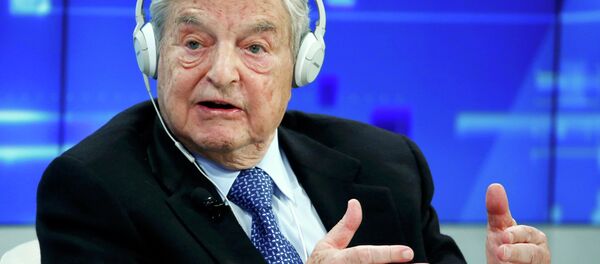"Both the US and China have a vital interest in reaching an understanding because the alternative is so unpalatable," Soros wrote in an article for the New York Review of Books.
"The benefits of an eventual agreement between China and the US could be equally far-reaching."
According to Soros, the danger could come if Chinese economic reforms fail. In that event, President Xi Jinping "may foster some external conflicts to keep the country united and maintain himself in power."
These "conflicts" would present themselves in the form of a Sino-Russo alliance which could draw the entire world into war.
"In that case, should the external conflict escalate into a military confrontation with an ally of the United States such as Japan, it is not an exaggeration to say that we would be on the threshold of a third world war," he writes.
Soros goes on to point out the key differences between Washington, Beijing, and Moscow, suggesting that China and Russia both consider themselves victims of "America’s aspirations to world domination."
"Fully recognizing these difficulties, the US government should nevertheless make a bona fide attempt at forging a strategic partnership with China," Soros writes.
"This would involve identifying areas of common interest as well as areas of rivalry. The former would invite cooperation, the latter tit-for-tat bargaining. The US needs to develop a two-pronged strategy that offers incentives for cooperation and deterrents that render tit-for-tat bargaining less attractive."
Soros also notes that regardless of what the US does, the world could be entering a renewed Cold War, but that such an outcome would "still be preferable to a third world war."





